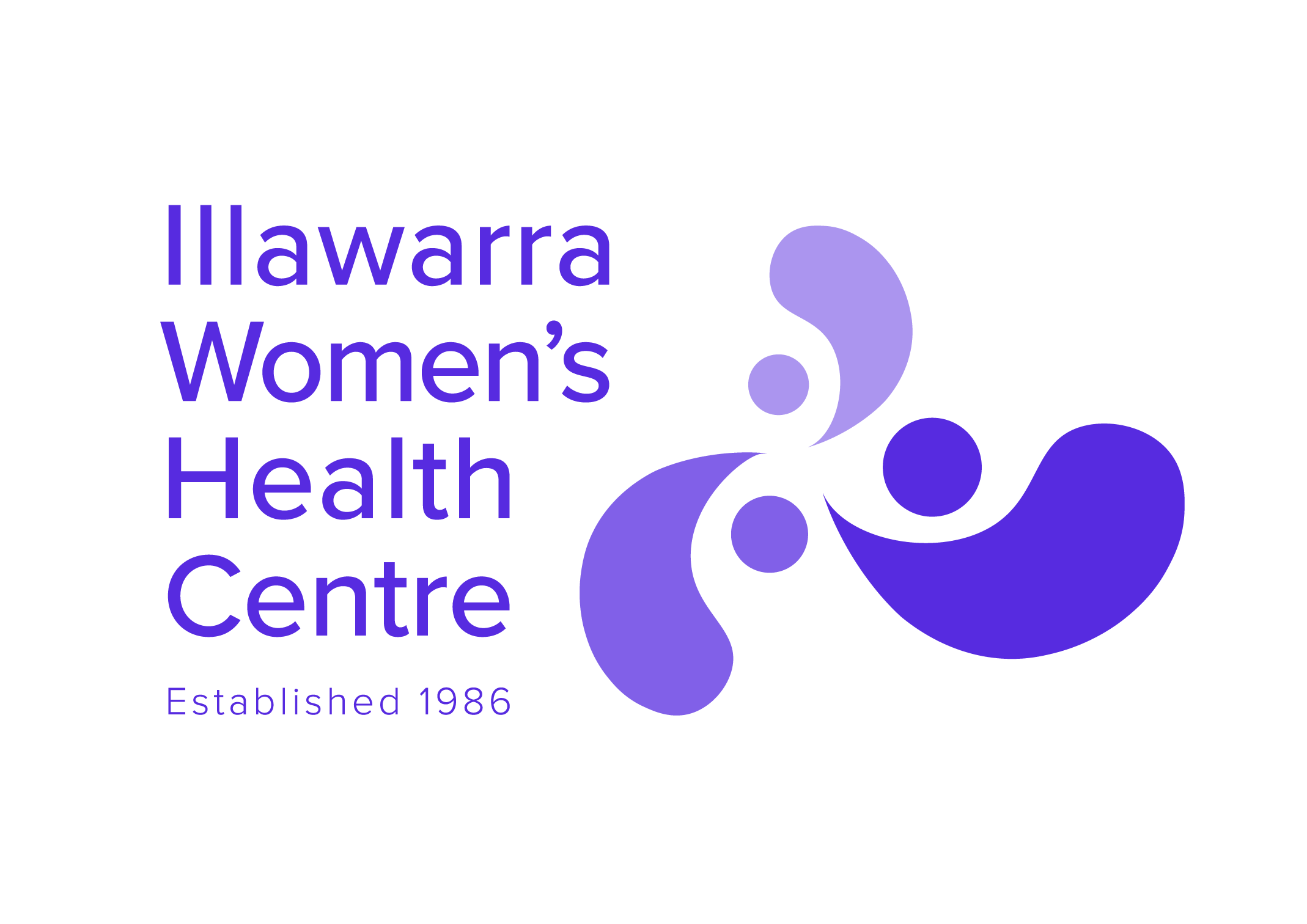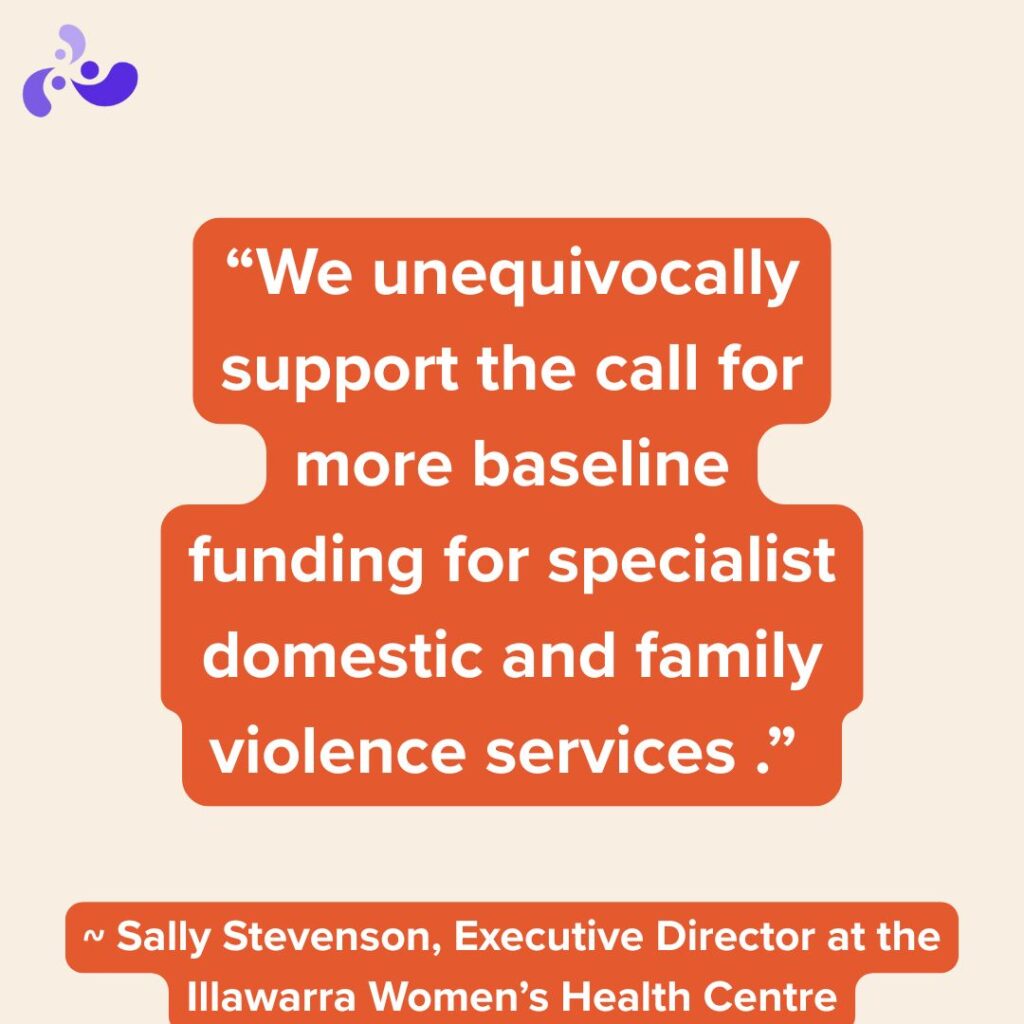The Illawarra Women’s Health Centre is seeing more women than ever reaching out for help.
Executive Director of the Centre, Sally Stevenson, says it’s a reflection of a much broader problem: a growing domestic and family violence crisis that’s intensifying across the region and the state.
In a recent article published by the Illawarra Mercury, specialist domestic and family violence services across New South Wales, including the Centre, called on the government to urgently increase baseline funding.
The article said according to Domestic Violence NSW (DVNSW), 96 per cent of frontline services have reported a spike in demand over the past year. Many are facing weeks, even months-long waitlists, as more women seek support in the face of escalating violence.
The Mercury also highlighted data from the Bureau of Crime Statistics and Research (BOCSAR), which shows that domestic violence-related assaults in the Illawarra increased by 8.2 per cent in the two years to December 2024.
Meanwhile, breaches of apprehended domestic violence orders (ADVOs) jumped nearly 30 per cent in Wollongong and 21 per cent in Shellharbour. While Kiama remained steady, the trend across the region is clear – and deeply concerning.
Ms Stevenson explained in the Illawarra Mercury article that the reasons for the trend are wide-ranging, including increases in technology-facilitated abuse, financial abuse, social media pressures, easy access to hard-core porn, which is violent and degrading to women, and a rising tide of conservatism and misogyny are all contributing to the problem. On top of this, the housing crisis and the soaring cost of living mean that many victim-survivors quite literally have nowhere else to go.
Despite a $230 million emergency funding package announced in last year’s state budget, the majority of that funding was short-term. Promises of further support haven’t materialised into sustained investment.
Ms Stevenson said while there’s always hope that more support will come, there’s little confidence it will be the baseline, long-term funding that the sector truly needs to meet the growing demand.
“Here at the Women’s Health Centre we’re seeing an increase of clients in crisis, and that crisis … is becoming more complex and intense,” Ms Stevenson said.
“We unequivocally support the call for more baseline funding,” Ms Stevenson said.
The Illawarra Women’s Health Centre, through its project, the Illawarra Women’s Trauma Recovery Centre provides specialised, individualised support to women recovering and healing from the trauma of domestic, family and sexual violence and abuse.
DVNSW CEO Delia Donovan described the situation with urgency, likening it to sending a paramedic to a major emergency with only one ambulance – frontline workers are being forced to make impossible decisions about who receives help and who is left without life-saving support.
“We need proper resourcing for victim-survivors and the frontline services – investment that ensures every person at risk has somewhere safe to turn,” she told the Mercury.
Minister for the Prevention of Domestic Violence and Sexual Assault, Jodie Harrison, acknowledged that domestic and family violence remains a significant challenge for the government. She did not confirm whether the upcoming state budget would include increased funding for services, but pointed to a $245.6 million four-year investment announced last year for program expansion, primary prevention, and perpetrator intervention.
Ms Harrison said she recognised domestic violence as a “blight” requiring a whole-of-community approach. She stressed the importance of addressing it not just through crisis responses but by working to break the cycle early and permanently.
As service providers on the frontline, we couldn’t agree more. But good intentions alone won’t help the women and families walking through our doors in urgent need. What we need is certainty. We need stable, long-term funding that matches the scale of the crisis and supports the women of our region with the dignity, safety, and care they deserve.
This is a matter of life and death to women – we can’t afford to wait any longer.

